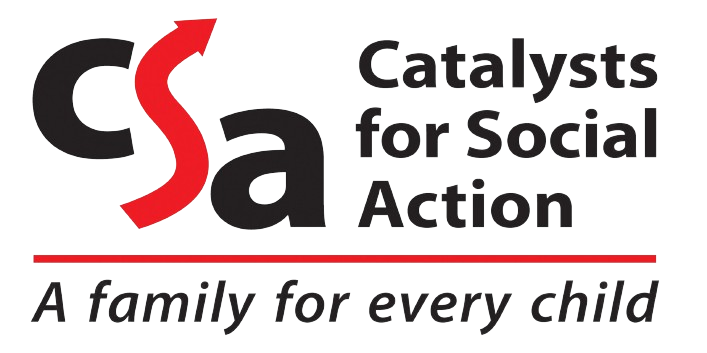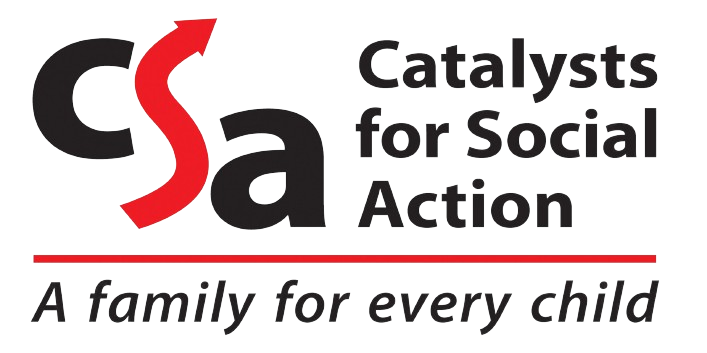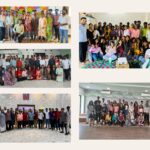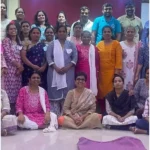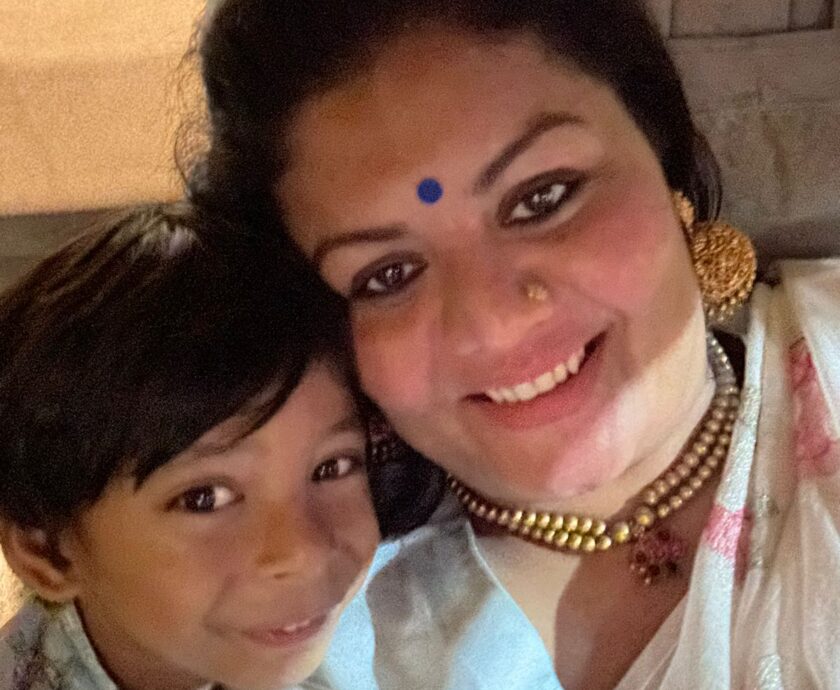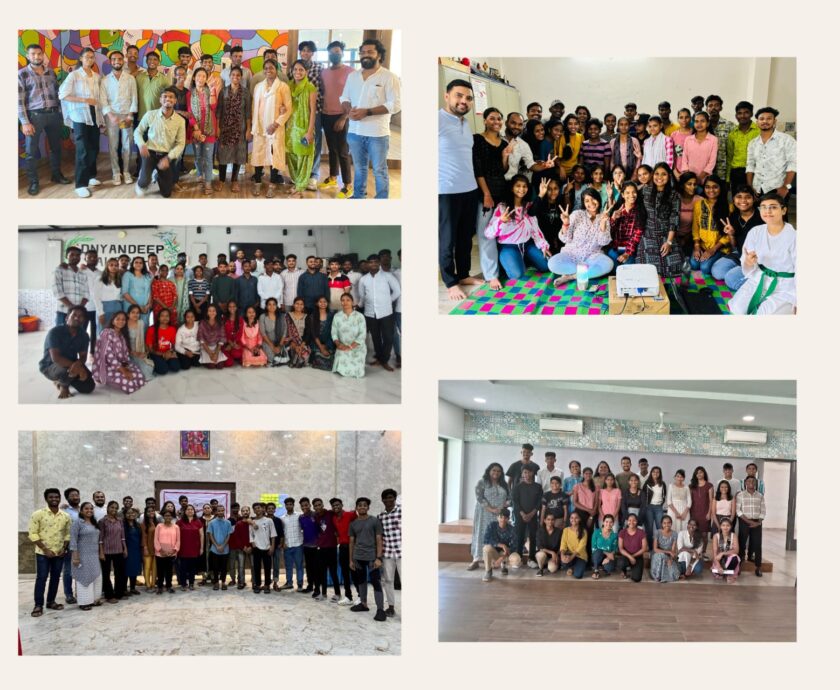Shreya* was experiencing excruciating pain in her left breast. She was unable to sleep and didn’t know what to do, lying alone on her bed in an Aftercare Home in Madhya Pradesh. The 18-year-old was just out of a Child Care Institution (CCI) and did not have anyone to contact in this emergency. She waited for the first ray of light and then called up Kajal* didi, who arranged for a doctor to see her immediately and accompanied her to the hospital.
Meanwhile, in Odisha, Altamash* was having a hard time adjusting in a CCI there. It had been a week since he was admitted there but did not speak to anyone. After realising that he speaks and understands only Kui, a south-central Dravidian language spoken in Odisha by an indigenous Adivasi tribe, the CCI Superintendent called Vijay* to intervene. Vijay Bhaiya travelled four hours a day to comfort Altamash, play with him and make him feel safe in an unfamiliar environment. The seven-year-old grew so close to Bhaiya that he calls him Baba (father).
Then, in an Aftercare Home in Goa, the only person 21-year-old Neha* confided in was Tanya* didi. The young girl was feeling very lonely and depressed for six months. The feeling of being abandoned was not new to her, only this time it was not because of her parents, who gave her up on an outstation train when she was a child, but because of her boyfriend, who left her. Didi has been going out of her way to console Neha, to engage her in activities and also ensures she takes counselling sessions to cope with the pain.
Twins were brought to a CCI in Maharashtra by their paternal grandmother after both their parents died in quick succession during the COVID-19 pandemic. Their father was wheelchair bound because of polio, and their mother had several comorbidities. Ramesh* Bhaiya became a close companion to the nine-year-old boys in no time. They played together, studied together, and grew very fond of him. Bhaiya also used to go to their school during parents-teachers meetings and would make sure they got their daily dose of exercise and nutrition.
The Didis and Bhaiyas in these real life situations are the programme officers (PO) of Catalysts for Social Action (CSA). All these stories are a testament to the deep-rooted trust and love that these boys and girls have for them. It makes one wonder what these POs are doing exactly to build such a connection with these young vulnerable souls.
A programme officer at CSA is much more than a job title; it’s a role steeped in responsibility, empathy, and strategic foresight. Their days are filled with a balance of planning, coordination, and evaluation. “Some days are a mixed bag; you don’t know what it will throw up…” said a young PO.
CSA has a total of 50 POs working in our CCI, and Aftercare and Livelihood programmes in Maharashtra, Odisha, Goa, Madhya Pradesh and Karnataka. At the beginning of the year, they prepare half-yearly/ quarterly/monthly and weekly plans which are usually broken down into the ratio of 3:2 – with most of the days being dedicated to the field and the rest to desk work. CSA has annual activities chalked down for education, health, sanitation and hygiene under the ‘Learning and Wellness’ and ‘Health and Necessities’ and several Aftercare activities. Our POs also make it a point to celebrate festivals and significant days like Menstrual Hygiene Day, International Yoga Day and Independence Day with our children with the support of the CCI staff.
During field work time is allotted to meet and mingle with children, to ensure their well-being and attend to their problems; building and maintaining relationships with CCI and Child Welfare Committee officials. Apart from field work, a lot of their time goes into ensuring the tuition teachers and contract staff we depute for our children are paid on time, invoices are uploaded to our internal system and donor reports are made and submitted on time.
Most of the POs who work in CCIs also work for our care leavers, who leave institutional care on turning 18, and give them career guidance, counselling and prepare their Aftercare plan. The 30+ POs in the Aftercare and Livelihood programme orient our care leavers in various initiatives – career awareness, job readiness, emotional well-being (YourDOST), improving their spoken English (Bindaas Bol) and financial literacy training.
Every time a new educational institute or a course sprouts up, it is the duty of our PO to first acquire all the information about it and then let our young adults know about a new career option for them. It also comes under the PO’s purview to plan donor and managing committee member visits at various CCIs. A large chunk of their day goes into attending numerous calls that are scheduled with their location head, their own team and then there are sporadic calls from different teams (Donor Relations, Fund Raising, Communications, Finance) asking for urgent details about their work.
Amongst all this, there are POs who go the extra mile and work to strengthen the system. Many of them are part of the district inspection committee constituted as per the Juvenile Justice (Care and Protection of Children) Act, 2015. This committee visits CCIs once in three months to inspect and review their condition and give suggestions to the District Child Protection Unit on what needs to be improved.
‘Friend, Philosopher and Guide’ – may be a hackneyed term, but it falls true for all our programme officers as their work is a powerful reminder of what can be achieved when passion meets purpose. They are the backbone of CSA.
*All names have been changed to protect identity.
